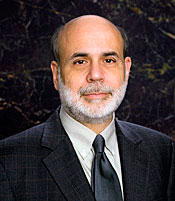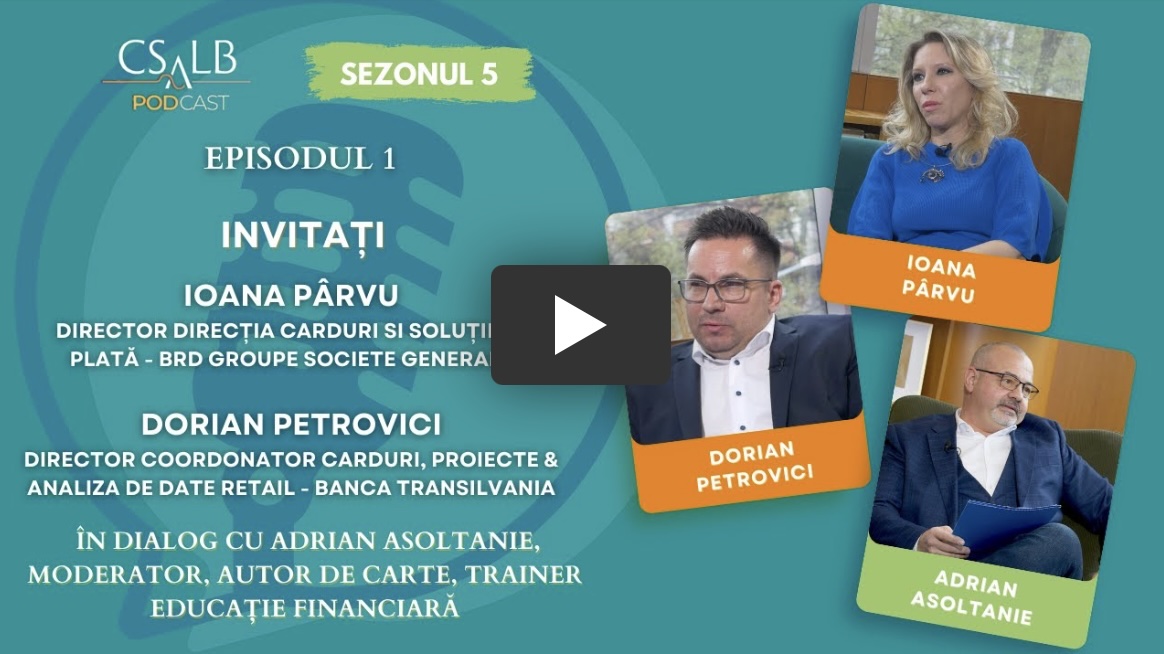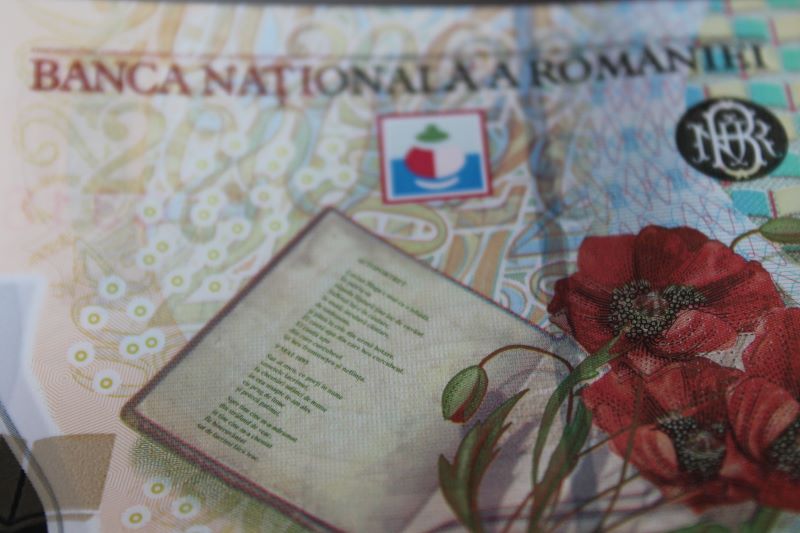Ben S. Bernanke: Financial Education

Chairman Ben S. Bernanke rnAt the Conversation with the Chairman: A Teacher Town Hall Meeting, Federal Reserve Board, Washington, D.C.rnAugust 7, 2012 rnrnFinancial EducationrnrnGood afternoon and welcome. I am delighted to have the opportunity to speak today with educators throughout the country on the topic of financial education. Thank you for your participation and for the important work you do. As an educator myself, I understand the profound effect that good teachers and a quality education have on the lives of our young people. Today I hope you will learn from each other and share ways to best promote learning and, in particular, to help students achieve greater financial literacy. rnrnFinancial education supports not only individual well-being, but also the economic health of our nation. As the recent financial crisis illustrates, consumers who can make informed decisions about financial products and services not only serve their own best interests, but, collectively, they also help promote broader economic stability. Smart financial planning–such as budgeting, saving for emergencies, and preparing for retirement–can help households enjoy better lives while weathering financial shocks. Financial education can play a key role in getting to these outcomes. Research by Federal Reserve Board staff members on the effectiveness of financial education for young military personnel, for instance, found that those who had taken a high school financial education course were more likely to save regularly.1 rnrnEffective financial education is not just about teaching students about financial products or performing financial calculations. It also involves teaching them the essential skills and concepts they will need to make major financial choices. High school students might not recall specific information from a lesson about loans a year later when they go to get their first car loan or student loan. However, if they understand and remember some basic ideas–for instance, that it’s important to shop around for a loan to get the lowest interest rate, to review the fees charged, and to know how to contact financial counselors and advisers–they will be more likely to make a good decision. rnrnA particularly valuable lesson we can teach students is how to apply an economic way of thinking to their decisions. For instance, the topic of student loan debt and whether students are prepared to service that debt upon graduation has received increased attention lately. Students with some exposure to economic thinking will be more likely to conceptualize their spending on postsecondary education as an investment in their own human capital and choose their school, course of study, means of paying for their education, and profession with that thought in mind. Likewise, the economic tool of cost-benefit analysis should help students make sounder personal and financial decisions. rnrnFinancial education also provides a context for students to develop important skills that can be applied more broadly. Making good financial decisions requires that consumers seek out relevant information from trustworthy sources, and that they use critical thinking, quantitative reasoning, and decisionmaking skills. These competencies are also some of the fundamental abilities our schools seek to inculcate in our children. rnrnAs with other types of education, the format and quality of the content matters a great deal. Providing financial education that is realistic, interesting, and relevant can help students retain information and remain engaged. Games and simulations can be particularly effective at keeping students interested. For example, in 2010, I spoke at the opening of the Junior Achievement Finance Park in Fairfax, Virginia.2 This organization, as well as similar facilities throughout the country, allows students to play the role of a family head with financial challenges and opportunities, giving them a chance to practice financial decisionmaking in a realistic setting. rnrnStudents and their parents can become financially literate together through exercises such as intergenerational homework assignments, which reinforce the concepts taught in class. Such strategies allow educators to help adults who until then may not have been exposed to financial concepts. rnrnTo provide the most effective education, curriculums should also have clear standards and goals. To that end, the federal government’s Financial Literacy and Education Commission, of which the Federal Reserve is a member, has identified five core competencies that should be covered by financial education: earning and income, spending, saving and investing, borrowing, and protecting. Behind each of these competencies is a set of related knowledge and skills, and corresponding behaviors. For example, in the category of earning and income, students are expected to know the difference between gross pay and net pay, and information about benefits and taxes. With this knowledge, they can understand their pay stubs and take full advantage of their workplace benefits. The five core competencies are reflected in the National Standards for Personal Finance being developed by the Council for Economic Education; several of our Federal Reserve System colleagues are working with the council on this project. rnrnWhile it is important to begin teaching financial skills to children and teenagers, achieving and maintaining financial know-how is a lifelong undertaking. The types of financial decisions that people have to make–from paying for school to buying a home to planning for retirement–vary through the course of their lives, and thus we need to ensure that access to financial education is readily available at all stages of life. Moreover, relevant, accurate, and reliable financial information must be readily available to consumers at the time they are making their decisions. Given the ubiquity of smartphones, applications for mobile devices may be one effective method of delivering this just-in-time information at a relatively low cost. For example, our colleagues at the Department of the Treasury are currently running an “app” contest to design mobile tools to help Americans make better financial choices. rnrnBecause financially capable consumers ultimately contribute to a stable economic and financial system as well as improve their own financial situations, it’s clear that the Federal Reserve has a significant stake in financial education. We demonstrate our commitment through numerous programs and resources offered by the Federal Reserve System staff and through partnerships our Reserve Banks have formed with local educators and institutions. For instance, the Federal Reserve Bank of Chicago, during its annual Money Smart Week, conducts free classes and activities to help consumers better manage their personal finances. And the Federal Reserve Bank of St. Louis offers a broad selection of online personal finance courses that teachers can use along with their students. To find out more about what is happening in your area, I encourage you to visit the Federal Reserve System’s education website, www.federalreserveeducation.org. rnrnI would again like to thank you for your participation today, and I look forward to your questions. rnrn1. See Catherine Bell, Daniel Gorin, and Jeanne M. Hogarth (2009), “Does Financial Education Affect Soldiers’ Financial Behaviors? (PDF)” paper presented at the Federal Reserve System Community Affairs Research Conference, held in Washington, April 16-17. rn2. See Ben S. Bernanke (2010), “Brief Remarks,” speech delivered at the grand opening of the Junior Achievement Finance Park, Fairfax, Va., October 19. rn
Comentarii
Nu există comentarii pentru această știre.
Adauga un comentariu
Alte stiri din categoria: Opinie
Suma minima de plata la card inseamna ca platesti o dobanda mare
"Consumatorii să fie atenți la câteva lucruri: Dacă rambursează doar suma minimă de plată la un card de credit, vor plăti dobândă, însă dacă vor plăti rata întreagă din luna... detalii
Nu cumparati criptomonede!
Presedintele american Trump si sotia lui si-au lansat o criptomoneda care a fost cumparata, fireste, de multi oameni, sporindu-i rapid valoarea. "O criptomeda a presedintelui SUA nu poate sa scada... detalii
Dobanda BNR ar putea scadea la 5,75% in 2025
Dobanda de politica monetara a BNR (Banca Nationala a Romaniei) ar putea fi scazuta de trei ori in acest an, la 5,75%, de la 6,5%, cat este in prezent, conform... detalii
Dobanda la euro ar putea scadea de la 3% la 1,5%, in 2025
Dobanda de politica monetara a Bancii Centrale Europene (BCE) ar putea scadea de la 3% in prezent la 1,5% pana la finalul lui 2025, prognozeaza economistii. „Ne asteptam ca BCE... detalii
 Creditare iresponsabila promovata de un broker
Creditare iresponsabila promovata de un broker
 Inflatia este si consecinta cresterii salariilor
Inflatia este si consecinta cresterii salariilor
 ING ramane singura dintre bancile romanesti care-si face corect reclama la credite
ING ramane singura dintre bancile romanesti care-si face corect reclama la credite
 Cardurile devin inutile: acum se pot face plati instant gratis din aplicatiile bancare
Cardurile devin inutile: acum se pot face plati instant gratis din aplicatiile bancare
 Au neglijat bancile securitatea pentru digitalizare?
Au neglijat bancile securitatea pentru digitalizare?
 BRD isi lichideaza filialele din Romania. Va fi vanduta si banca?
BRD isi lichideaza filialele din Romania. Va fi vanduta si banca?
 De ce permit bancile transferuri catre platforme de criptomonede prin care se fac fraude online?
De ce permit bancile transferuri catre platforme de criptomonede prin care se fac fraude online?
 Banca Transilvania implineste 30 de ani
Banca Transilvania implineste 30 de ani
 De cand si cat de mult ar putea sa scada dobanzile in 2024?
De cand si cat de mult ar putea sa scada dobanzile in 2024?
 Ce responsabilitate au bancile in cazul fraudelor online?
Vezi toate stirile
Ce responsabilitate au bancile in cazul fraudelor online?
Vezi toate stirile
Criza COVID-19
- In majoritatea unitatilor BRD se poate intra fara certificat verde
- La BCR se poate intra fara certificat verde
- Firmele, obligate sa dea zile libere parintilor care stau cu copiii in timpul pandemiei de coronavirus
- CEC Bank: accesul in banca se face fara certificat verde
- Cum se amana ratele la creditele Garanti BBVA
Topuri Banci
- Topul bancilor dupa active si cota de piata in perioada 2022-2015
- Topul bancilor cu cele mai mici dobanzi la creditele de nevoi personale
- Topul bancilor la active in 2019
- Topul celor mai mari banci din Romania dupa valoarea activelor in 2018
- Topul bancilor dupa active in 2017
Asociatia Romana a Bancilor (ARB)
- Băncile din România nu au majorat comisioanele aferente operațiunilor în numerar
- Concurs de educatie financiara pentru elevi, cu premii in bani
- Creditele acordate de banci au crescut cu 14% in 2022
- Romanii stiu educatie financiara de nota 7
- Gradul de incluziune financiara in Romania a ajuns la aproape 70%
ROBOR
- ROBOR: ce este, cum se calculeaza, ce il influenteaza, explicat de Asociatia Pietelor Financiare
- ROBOR a scazut la 1,59%, dupa ce BNR a redus dobanda la 1,25%
- Dobanzile variabile la creditele noi in lei nu scad, pentru ca IRCC ramane aproape neschimbat, la 2,4%, desi ROBOR s-a micsorat cu un punct, la 2,2%
- IRCC, indicele de dobanda pentru creditele in lei ale persoanelor fizice, a scazut la 1,75%, dar nu va avea efecte imediate pe piata creditarii
- Istoricul ROBOR la 3 luni, in perioada 01.08.1995 - 31.12.2019
Taxa bancara
- Normele metodologice pentru aplicarea taxei bancare, publicate de Ministerul Finantelor
- Noul ROBOR se va aplica automat la creditele noi si prin refinantare la cele in derulare
- Taxa bancara ar putea fi redusa de la 1,2% la 0,4% la bancile mari si 0,2% la cele mici, insa bancherii avertizeaza ca indiferent de nivelul acesteia, intermedierea financiara va scadea iar dobanzile vor creste
- Raiffeisen anunta ca activitatea bancii a incetinit substantial din cauza taxei bancare; strategia va fi reevaluata, nu vor mai fi acordate credite cu dobanzi mici
- Tariceanu anunta un acord de principiu privind taxa bancara: ROBOR-ul ar putea fi inlocuit cu marja de dobanda a bancilor
Statistici BNR
- Deficitul contului curent, creștere cu 16% în ianuarie 2025
- Deficitul contului curent, aproape 30 miliarde euro în 2024
- Deficitul contului curent, aproape 20 miliarde euro după primele nouă luni
- Deficitul contului curent, aproape 18 miliarde euro după primele opt luni
- Deficitul contului curent, peste 9 miliarde euro pe primele cinci luni
Legislatie
- Decizia nr.105/2007 privind raportarea la Biroul de Credit
- Legea nr. 311/2015 privind schemele de garantare a depozitelor şi Fondul de garantare a depozitelor bancare
- Rambursarea anticipata a unui credit, conform OUG 50/2010
- OUG nr.21 din 1992 privind protectia consumatorului, actualizata
- Legea nr. 190 din 1999 privind creditul ipotecar pentru investiții imobiliare
Lege plafonare dobanzi credite
- Care este dobanda maxima la un credit IFN?
- BNR propune Parlamentului plafonarea dobanzilor la creditele bancilor intre 1,5 si 4 ori peste DAE medie, in functie de tipul creditului; in cazul IFN-urilor, plafonarea dobanzilor nu se justifica
- Legile privind plafonarea dobanzilor la credite si a datoriilor preluate de firmele de recuperare se discuta in Parlament (actualizat)
- Legea privind plafonarea dobanzilor la credite nu a fost inclusa pe ordinea de zi a comisiilor din Camera Deputatilor
- Senatorul Zamfir, despre plafonarea dobanzilor la credite: numai bou-i consecvent!
Anunturi banci
- BCR este inchisa vineri, 18 aprilie, si luni, 21 aprilie
- Cererile de transfer de bani prin Whatsapp, Telegram, Messenger sunt fraude
- Un telefon sau mesaj care pare de la banca poate fi frauda
- Cererea unui ajutor in bani poate fi o inselaciune
- Cate reclamatii primeste Intesa Sanpaolo Bank si cum le gestioneaza
Analize economice
- Inflația anuală, redusă la 4,86%
- Comerțul, a cincea lună consecutivă de ajustare a creșterii
- Pensia reală a crescut cu peste 15% anul trecut
- Deficitul bugetar, rezultat slab după primele două luni
- Deficit comercial în creștere cu 38,5% pe ianuarie 2025
Ministerul Finantelor
- Deficitul bugetar, din ce în ce mai mare la început de an
- -8,65% din PIB, deficit bugetar pe anul 2024
- Datoria publică, 51,4% din PIB la mijlocul anului
- Deficit bugetar de 3,6% din PIB după prima jumătate a anului
- Deficit bugetar de 3,4% din PIB după primele cinci luni ale anului
Biroul de Credit
- FUNDAMENTAREA LEGALITATII PRELUCRARII DATELOR PERSONALE IN SISTEMUL BIROULUI DE CREDIT
- BCR: prelucrarea datelor personale la Biroul de Credit
- Care banci si IFN-uri raporteaza clientii la Biroul de Credit
- Ce trebuie sa stim despre Biroul de Credit
- Care este procedura BCR de raportare a clientilor la Biroul de Credit
Procese
- ANPC pierde un proces cu Intesa si ARB privind modul de calcul al ratelor la credite
- Un client Credius obtine in justitie anularea creditului, din cauza dobanzii prea mari
- Hotararea judecatoriei prin care Aedificium, fosta Raiffeisen Banca pentru Locuinte, si statul sunt obligati sa achite unui client prima de stat
- Decizia Curtii de Apel Bucuresti in procesul dintre Raiffeisen Banca pentru Locuinte si Curtea de Conturi
- Vodafone, obligata de judecatori sa despagubeasca un abonat caruia a refuzat sa-i repare un telefon stricat sau sa-i dea banii inapoi (decizia instantei)
Stiri economice
- Deficitul comercial pe primele două luni ale anului, majorat cu 35%
- România, campioana europeană la șomajul tinerilor
- România, pe locul trei în UE la creșterea costului salarial în T4 2024
- Producția industrială, scădere conjuncturală în ianuarie 2025
- Datoria publică, 54,6% din PIB la finele lui 2024
Statistici
- România, marginal peste Estonia la inflația anuală
- România, a doua țară din UE ca pondere a salariaților cu venituri mici
- România, pe locul trei în UE la creșterea costului muncii în T2 2024
- Cheltuielile cu pensiile - România, pe locul 19 în UE ca pondere în PIB
- Dobanda din Cehia a crescut cu 7 puncte intr-un singur an
FNGCIMM
- Programul IMM Invest continua si in 2021
- Garantiile de stat pentru credite acordate de FNGCIMM au crescut cu 185% in 2020
- Programul IMM invest se prelungeste pana in 30 iunie 2021
- Firmele pot obtine credite bancare garantate si subventionate de stat, pe baza facturilor (factoring), prin programul IMM Factor
- Programul IMM Leasing va fi operational in perioada urmatoare, anunta FNGCIMM
Calculator de credite
- ROBOR la 3 luni a scazut cu aproape un punct, dupa masurile luate de BNR; cu cat se reduce rata la credite?
- In ce mall din sectorul 4 pot face o simulare pentru o refinantare?
Noutati BCE
- Dobanda la euro scade la 2,25%
- Acord intre BCE si BNR pentru supravegherea bancilor
- Banca Centrala Europeana (BCE) explica de ce a majorat dobanda la 2%
- BCE creste dobanda la 2%, dupa ce inflatia a ajuns la 10%
- Dobânda pe termen lung a continuat să scadă in septembrie 2022. Ecartul față de Polonia și Cehia, redus semnificativ
Noutati EBA
- Bancile romanesti detin cele mai multe titluri de stat din Europa
- Guidelines on legislative and non-legislative moratoria on loan repayments applied in the light of the COVID-19 crisis
- The EBA reactivates its Guidelines on legislative and non-legislative moratoria
- EBA publishes 2018 EU-wide stress test results
- EBA launches 2018 EU-wide transparency exercise
Noutati FGDB
- Banii din banci sunt garantati, anunta FGDB
- Depozitele bancare garantate de FGDB au crescut cu 13 miliarde lei
- Depozitele bancare garantate de FGDB reprezinta doua treimi din totalul depozitelor din bancile romanesti
- Peste 80% din depozitele bancare sunt garantate
- Depozitele bancare nu intra in campania electorala
CSALB
- Sistemul bancar romanesc este deosebit de bine pregatit pentru orice fel de socuri
- La CSALB poti castiga un litigiu cu banca pe care l-ai pierde in instanta
- Negocierile dintre banci si clienti la CSALB, in crestere cu 30%
- Sondaj: dobanda fixa la credite, considerata mai buna decat cea variabila, desi este mai mare
- CSALB: Romanii cu credite caută soluții pentru reducerea ratelor. Cum raspund bancile
First Bank
- Ce trebuie sa faca cei care au asigurare la credit emisa de Euroins
- First Bank este reprezentanta Eurobank in Romania: ce se intampla cu creditele Bancpost?
- Clientii First Bank pot face plati prin Google Pay
- First Bank anunta rezultatele financiare din prima jumatate a anului 2021
- First Bank are o noua aplicatie de mobile banking
Noutati FMI
- FMI: criza COVID-19 se transforma in criza economica si financiara in 2020, suntem pregatiti cu 1 trilion (o mie de miliarde) de dolari, pentru a ajuta tarile in dificultate; prioritatea sunt ajutoarele financiare pentru familiile si firmele vulnerabile
- FMI cere BNR sa intareasca politica monetara iar Guvernului sa modifice legea pensiilor
- FMI: majorarea salariilor din sectorul public si legea pensiilor ar trebui reevaluate
- IMF statement of the 2018 Article IV Mission to Romania
- Jaewoo Lee, new IMF mission chief for Romania and Bulgaria
Noutati BERD
- Creditele neperformante (npl) - statistici BERD
- BERD este ingrijorata de investigatia autoritatilor din Republica Moldova la Victoria Bank, subsidiara Bancii Transilvania
- BERD dezvaluie cat a platit pe actiunile Piraeus Bank
- ING Bank si BERD finanteaza parcul logistic CTPark Bucharest
- EBRD hails Moldova banking breakthrough
Noutati Federal Reserve
- Federal Reserve anunta noi masuri extinse pentru combaterea crizei COVID-19, care produce pagube "imense" in Statele Unite si in lume
- Federal Reserve urca dobanda la 2,25%
- Federal Reserve decided to maintain the target range for the federal funds rate at 1-1/2 to 1-3/4 percent
- Federal Reserve majoreaza dobanda de referinta pentru dolar la 1,5% - 1,75%
- Federal Reserve issues FOMC statement
Noutati BEI
- BEI a redus cu 31% sprijinul acordat Romaniei in 2018
- Romania implements SME Initiative: EUR 580 m for Romanian businesses
- European Investment Bank (EIB) is lending EUR 20 million to Agricover Credit IFN
Mobile banking
- Comisioanele BRD pentru MyBRD Mobile, MyBRD Net, My BRD SMS
- Termeni si conditii contractuale ale serviciului You BRD
- Recomandari de securitate ale BRD pentru utilizatorii de internet/mobile banking
- CEC Bank - Ghid utilizare token sub forma de card bancar
- Cinci banci permit platile cu telefonul mobil prin Google Pay
Noutati Comisia Europeana
- Avertismentul Comitetului European pentru risc sistemic (CERS) privind vulnerabilitățile din sistemul financiar al Uniunii
- Cele mai mici preturi din Europa sunt in Romania
- State aid: Commission refers Romania to Court for failure to recover illegal aid worth up to €92 million
- Comisia Europeana publica raportul privind progresele inregistrate de Romania in cadrul mecanismului de cooperare si de verificare (MCV)
- Infringements: Commission refers Greece, Ireland and Romania to the Court of Justice for not implementing anti-money laundering rules
Noutati BVB
- BET AeRO, primul indice pentru piata AeRO, la BVB
- Laptaria cu Caimac s-a listat pe piata AeRO a BVB
- Banca Transilvania plateste un dividend brut pe actiune de 0,17 lei din profitul pe 2018
- Obligatiunile Bancii Transilvania se tranzactioneaza la Bursa de Valori Bucuresti
- Obligatiunile Good Pople SA (FRU21) au debutat pe piata AeRO
Institutul National de Statistica
- România, la 78% din PIB-ul mediu pe locuitor al UE
- Producția industrială, la cota -1,8% după 11 luni din 2024
- Deficitul contului curent, peste 26 miliarde euro în noiembrie 2024
- Comerțul cu amănuntul - în creștere cu 8% pe primele 10 luni
- Deficitul balanței comerciale la 9 luni, cu 15% mai mare față de aceeași perioadă a anului trecut
Informatii utile asigurari
- Data de la care FGA face plati pentru asigurarile RCA Euroins: 17 mai 2023
- Asigurarea împotriva dezastrelor, valabilă și in caz de faliment
- Asiguratii nu au nevoie de documente de confirmare a cutremurului
- Cum functioneaza o asigurare de viata Metropolitan pentru un credit la Banca Transilvania?
- Care sunt documente necesare pentru dosarul de dauna la Cardif?
ING Bank
- La ING se vor putea face plati instant din decembrie 2022
- Cum evitam tentativele de frauda online?
- Clientii ING Bank trebuie sa-si actualizeze aplicatia Home Bank pana in 20 martie
- Obligatiunile Rockcastle, cel mai mare proprietar de centre comerciale din Europa Centrala si de Est, intermediata de ING Bank
- ING Bank transforma departamentul de responsabilitate sociala intr-unul de sustenabilitate











